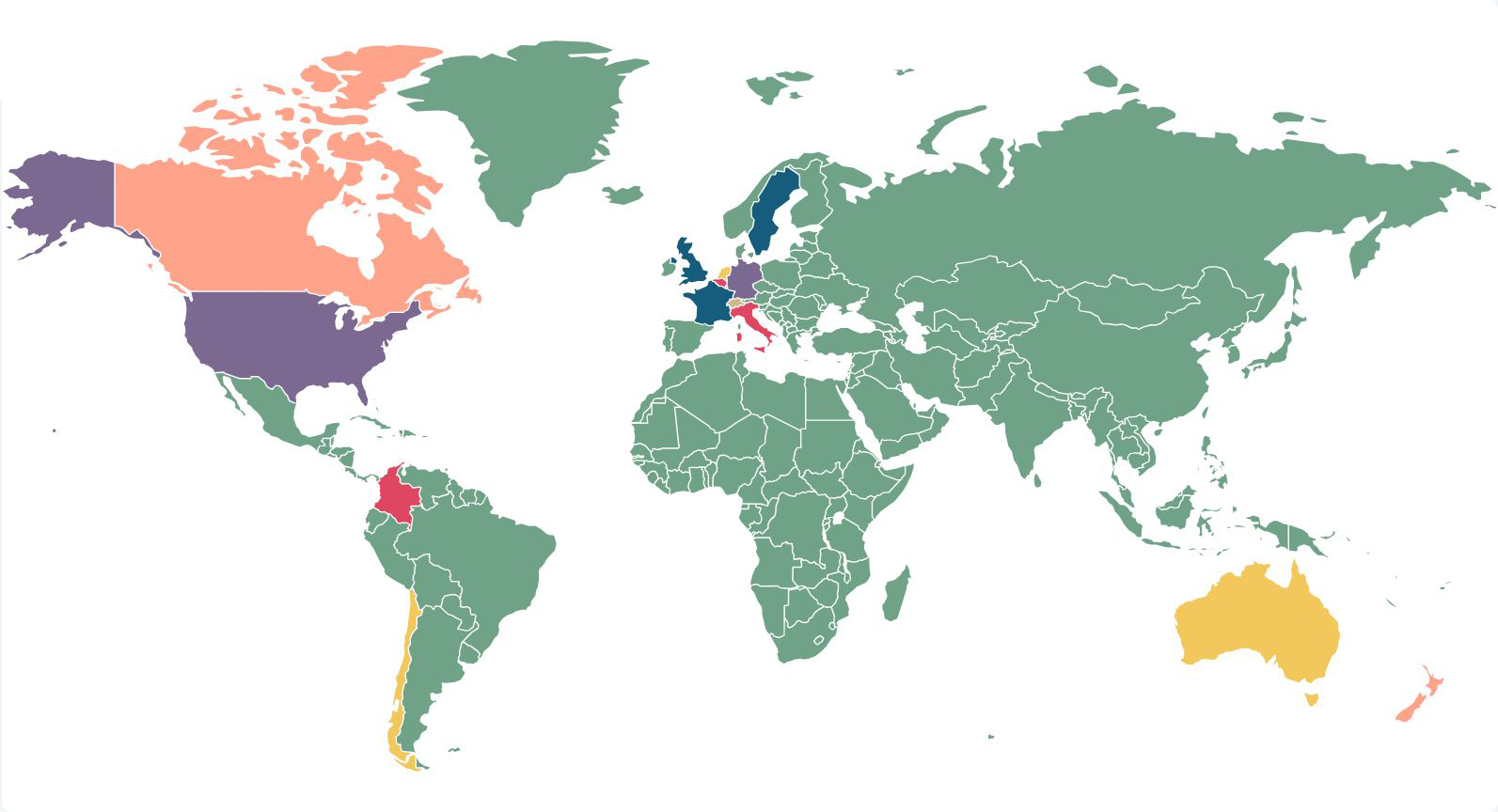Accountants: There is a risk of mistakes with the evolving and increasing tax burden
The hard choices that the new government said it faced were self-evident in its first budget on 30 October 2024. We saw the manifesto commitments to raise revenue via taxation be implemented in areas such as VAT on private school fees, abolishing the non-dom regime, carried interest (Private Equity) and the Energy Profits Levy. We also saw new taxes, some of which had been trialled and others which were unexpected, including increases in employers' NI, inheritance tax on pensions and agricultural property, increases in capital gains rates, increases in business asset disposal relief and stamp duty on second homes. To balance these additional liabilities against the manifesto's overriding objective to grow the economy, there was greater clarity on the business tax roadmap which includes capping corporation tax at 25% and maintaining the expensing policies. Whether the right balance has been struck between giving businesses enough certainty to have confidence to invest while maintaining flexibility to deal with the inevitable political and economic shocks can only be judged in hindsight. In the meantime, it is the tax advisers who are having to navigate an increasingly complex system to advise their clients on effectively managing and mitigating their tax burden, both in respect of the actual legislative changes and those that are signposted in the roadmap. It is trite but true to say some of these advisers will get it wrong while the new changes bed in.
Accountants: Accounting regulation will come to encompass directors
The jurisdiction of the Financial Reporting Council (FRC) is currently restricted to those who audit accounts (the auditors) and does not extend to those who prepare them (the directors). The FRC has long argued for this to be rectified but political lethargy has prevented the necessary legislation being passed. With the change in government, 2025 may see a move to change this situation, with directors being brought within the remit of the body replacing the FRC, namely the Audit, Reporting and Governance Authority (ARGA). The impact this would have on accounting investigations and corporate governance more generally cannot be overstated, and will play out in profound ways over the coming years.
Construction Professionals: Dwelling on the past – a rise in claims under the Defective Premises Act
The rise in claims under the Defective Premises Act 1972 (DPA) over the past 12 months is set to continue with more disputes reaching trial as clarification over the parameters of such claims is sought. The resurgence has largely been due to the extended retrospective 30 year limitation period under the Building Safety Act 2022, which has thrust the rarely used legislation into the spotlight. Claims which have long since been time barred are now being pursued based on allegations that defects rendered a property unfit for habitation. There remain relatively few reported decisions on the DPA, leaving construction professionals, their insurers and legal advisors grappling with thorny issues such as whether a property is 'unfit for habitation' on completion and whether liability under the DPA is strict, as opposed to requiring a finding of negligence. A further likely battleground is the definition of 'dwelling' and specifically whether this (and therefore the DPA) applies to properties such as student accommodation and holiday lets.
Construction Professionals: A rich seam of claims caused by geotechnical issues
The effects of climate change and the continued drive to build housing stock and commercial premises on previously undeveloped land are likely to drive an increase in the number, type and scope of geotechnical claims. A good example is the increasing prevalence of sinkholes in the UK. When a sinkhole occurs it does so suddenly and can cause catastrophic damage to buildings or even collapse. The increased number of construction projects on land underlain by chalk on greenfield sites, together with more frequent heavy rain events are two key factors. Inundation of the soil/chalk leads to an increase in subterranean voids in the chalk which in turn enhance the risk of collapse, resulting in a sinkhole occurring at the surface. The extreme heat/heavy rain weather-cycle also negatively impacts slope stability resulting in the unwanted movement or collapse of railway/road embankments and cuttings (as well as triggering natural landslides). Geotechnical engineers will be in greater demand at the front end of projects to assess the ever changing landscape of geotechnical risk, but also at the back end when things go wrong and claims result.
Financial Advisers: Ongoing services and charges will face further scrutiny
Prompted by the introduction of the Consumer Duty in July 2023, advice firms will face closer scrutiny from the Financial Conduct Authority (FCA) about the ongoing service they are providing in return for the charges they are making. Since the Retail Distribution Review in 2012, financial advisers are only allowed to charge customers an ongoing advice charge if they provide an ongoing service. In February 2024, the FCA commenced a survey seeking information on this from a range of firms. The FCA also raised concerns about the issue when it published its thematic review on retirement income advice in March 2024 and again in its Dear CEO letter in October 2024. In response to this increased scrutiny, and in the face of high levels of claims management company activity in the area, firms are having to consider how to approach ongoing charging in the future and also whether their approach was justifiable in the past. The likely result is going to be reviews of past business and claims seeking repayment of charges.
Insurance Brokers: Underinsurance will continue to plague the insurance market
The problem of underinsurance and the application of average is worsening and professional negligence claims against insurance brokers (for the shortfall in claims payments) are expected to increase. Indeed, a recent survey found that a staggering 46% of commercial properties were likely to be underinsured, with the average shortfall in cover being 40%. There has been significant inflation in rebuild and repair costs (labour and materials) and delays are extending periods of business interruption. Claim payments are being reduced, often significantly, due to such underinsurance. A broker is not a surveyor or valuer, but is under a duty to advise clients on the need to keep the adequacy of building sums insured under regular review, as well as warning of the potential consequences of average being applied where there is underinsurance. Further, the broker must advise on an appropriate length of business interruption insurance for a client's business. Without such clear advice, clients facing shortfalls in claim payments are likely to look to their insurance brokers for compensation.
Legal Professionals: Compliant onboarding will be a focus for lawyers and the SRA
The Solicitors Regulation Authority (SRA) will continue to focus on anti-money laundering breaches by law firms in the year ahead, but there will also be some new areas of interest. In particular, the SRA has reminded lawyers of their obligation when acting for claimants in group litigation to ensure that they have obtained each individual client's authority to litigate. In response to concerns that lawyers have failed to do so in certain recent high profile litigation, the SRA has issued guidance in this area. While the guidance is aimed at claims relating to financial services products, we predict that it will be applied in any case involving multiple claimants. Given the SRA's proposals to increase its fining powers, lawyers practising in this area will be well advised to heed the guidance and ensure that all clients are onboarded properly and systems are in place to ensure that they receive the same high standard of advice as any other client.
Legal Professionals: AI will remain high on the opportunity/risk spectrum
In last year's predictions, we mentioned the developing impact of AI in the legal sector and the opportunities and risks that come with it. One year on, this remains highly topical, reflected in an updated Law Society Guidance Note issued in August 2024, and a Law Society Gazette roundtable report in September 2024. The Law Society is calling for a 'balanced' approach to reflect that there are both risks and opportunities, in response to the UK Government's pro-innovation approach. The momentum is increasing and fears have been expressed about a two tier landscape, with smaller firms being unable to offer the tech-savvy solutions demanded by increasingly sophisticated clients. Technological advances are nothing new, but the use and misuse of AI will be a recurring theme for the profession over the next 5-10 years.
Media and Lawyers: Ongoing scrutiny of SLAPPs (Strategic Lawsuits Against Public Participation)
There will continue to be scrutiny on the conduct of claimants and their solicitors in litigation, given the ongoing political and regulatory focus on SLAPPs (Strategic Lawsuits Against Public Participation). The new government has reiterated its support for further SLAPPs reforms (which have cross-party support), following the introduction of the early dismissal mechanism to address SLAPPs in economic crime proceedings under the Economic Crime and Corporate Transparency Act 2023 (with new Civil Procedure Rules awaited to bring the mechanism fully into effect). The Solicitors Regulation Authority - which has joined the government's taskforce on SLAPPs - is also continuing its focus on solicitors' conduct in cases that might be deemed to be SLAPPs, following its thematic review on this issue in April 2024 and its updated Warning Notice to solicitors and law firms in May 2024.
Pensions: Changes are needed to make pensions fit for purpose in the future
Pensions are to fund the cost of living in retirement, they are not savings vehicles to pass on to the younger generation, was the clear message in the first budget by Rachel Reeves. There are three things to take away from this, even before the consultation on the proposed changes is undertaken. Imposing inheritance tax on remaining pension benefits and maintaining the current imposition of income tax will lead to an effective tax rate of around 67%, resulting in wealthier pensioners almost certainly looking to 'spend the kids' inheritance'. This will be a significant shift from the more usual financial advice on this issue. Then, there is the administrative burden and complexity on providers and executors of the new regime and the inevitable mistakes and claims that will emanate from such a significant change. Finally, we can be confident this will not be the last change we will see. The longer-term benefit in tax revenues of imposing IHT on pensions must be in doubt given that the Institute for Fiscal Studies recently concluded that the assumption, that future pensioners will be in the same position as today's pensioners, needs challenging. Although automatic enrolment has helped more people save for retirement than ever before, it leaves the individual investor bearing all the risk, for example on poor investment choices, insufficient contributions and withdrawing too much too early. The current system also does not meet the needs of those unable to work until they reach the currently escalating retirement age or address the unaffordability of the triple lock on the state pension in the longer term or the worrying low levels of the self-employed saving in a pension plan. It is a long list and some of these are issues that the government may well grapple with during the course of this parliament.
Surveyors and Valuers: The Renters' Rights Bill will impact property managers and valuers
The Renters' Rights Bill will reform the private rented sector, improving rights and conditions for tenants. Abolition of no fault eviction (and revision of the other possession grounds) will make it harder for landlords to obtain possession, which may impact lenders' appetite across the sector, and therefore prices. Valuers will also need to take into account the proposed new minimum safety and maintenance standards, which will affect whether a property can be used for letting purposes. These proposed new home standards will also impact property managers, who will want to avoid exposing landlords to fines and penalties for letting non-compliant property. Risk exposure may be mitigated through appropriate caveats in a property professional's terms and conditions. On a brighter note, it remains to be seen if the Private Rented Sector Landlord Ombudsman scheme results in a decline in litigated claims brought by tenants against agents.
Surveyors and Valuers: Beware building remediation risks for property managers, building surveyors and valuers
As the dust settles on one of the hottest political potatoes of the last five years - responsibility for building remediation costs to meet the latest safety standards - it is not inconceivable that those left holding the baby might now explore potential recovery opportunities against any professionals who may have advised on the acquisition of buildings, sometimes whole portfolios, for investment purposes. If claims against the original contractor and/or design team are time-barred, despite the Building Safety Act limitation period extensions, there is a risk that this may provoke imaginative and arguably speculative claims against building surveyors, property managers or even valuers who advised pre-purchase. Clairvoyance does not fall within the scope of the duty owed, but scrutiny of who knew (or should have known) what and when may well provoke accusations of failures to warn and flag valuation uncertainty.
Surveyors and Valuers: The future looks bright for residential surveyors, from a lender claim perspective
Recessions usually cause property values to fall and lender claims to rise. Yet despite fallout from Brexit, COVID-19 and the now infamous mini budget of October 2022, values held firm. Should the recently announced budget changes coupled with falling interest rates, higher stock levels, a relaxation in capital requirements (through the latest Basel guidance), and softening lender lending criteria (loan-to-value ratios and affordability criteria) raise concerns that the benign claims environment enjoyed for the last decade is about to change? Pleasingly, the answer appears to be a firm 'no'. Unemployment levels remain low, first time buyers (50% of the transactional market in the last 12 months) still have the 'Bank of Mum & Dad' and upsizing home-movers are returning, but with prudent caution. Some private landlords or second home owners may be leaving the market due to impending tax changes (both national and local) and ever greater regulation, but they are doing so by choice, not compulsion, and not in sufficient numbers to impact values.
Technology Professionals: More problems will arise from IT updates, upgrades and fixes
With the ever increasing number of connected IT products (hardware and software – often referred to as the Internet of Things), we predict that knock on effects from updates, upgrades and fixes to one product will lead to an increasing number of complications with other products and result in claims. We have already seen from the CrowdStrike outage what real life damage such knock on effects can cause and, in our view, the real question is about "when" and not "if" such issues will rear their heads again. The likelihood of such occurrences (whether of the scale of the CrowdStrike outage or (much) smaller) brings into sharp focus the importance of properly drafted terms and conditions (and in particular their limitation of liability provisions) for all manner of IT products (including hardware with embedded upgradable firmware or its own operating software).




